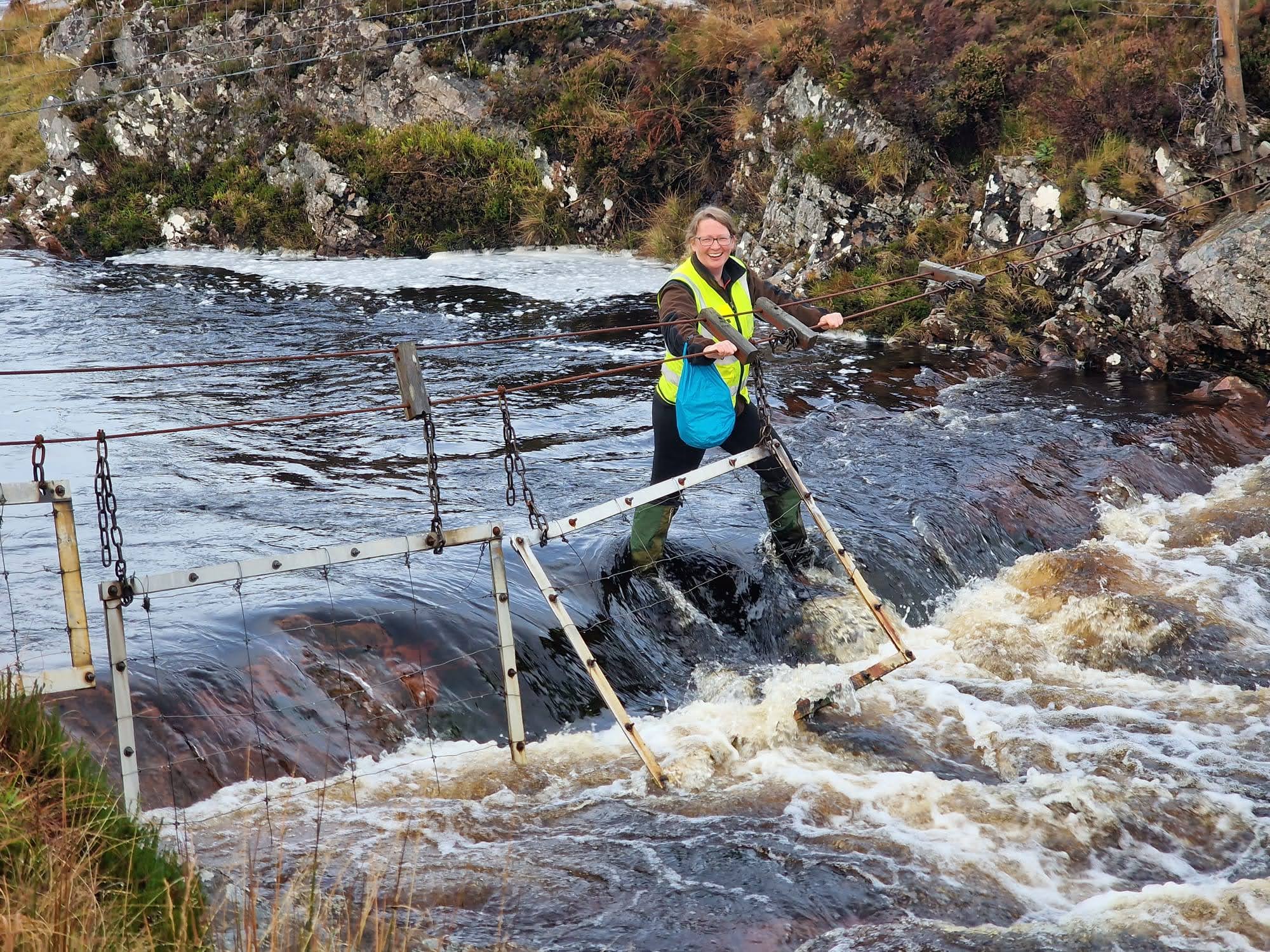PhD Researcher Spotlight: Anna McWilliam
As part of our ongoing commitment to supporting innovative research, and to celebrate World Water Monitoring Day this month, we’re excited to highlight the work of PhD researcher Anna McWilliam. Her studies focus on improving water quality following tree felling and peatland restoration using low-impact methods and innovative brash management. In this Q&A, we explore Anna’s journey, research, and aspirations.
Q: Can you tell us about your journey? What brought you to pursue a PhD with UHI?
I graduated from the University of Ireland, Galway with a BSc (Hons) in Science, and then completed an MSc in Wildlife Management and Conservation at the University of Reading. After that, I worked as a research ecologist for several years, contributing to projects like the Langholm Moor Demonstration Project and the Scottish Grey Partridge Recovery Project.
Later, I transitioned into forestry, where I worked in areas like deer management, environment, and harvesting. It was during this time that I saw opportunities to improve how brash could be managed to reduce its negative environmental effects. This led me to start my PhD with UHI in 2021.

Q: Could you explain what your PhD is about, and why this research is important?
My PhD is titled Innovative Brash Management to Enhance Water Quality Following Peatland Restoration and Forestry Operations. Essentially, water quality can be negatively impacted by tree felling and peatland restoration. My research aims to explore innovative, low-impact methods of forestry and restoration, and to create a water filter from brash, which is the foliage, branches, and tops left after trees are felled.
The idea is to turn what is often seen as a waste product into something that can help clean the water that’s impacted during these processes. The goal is to find more sustainable methods of managing brash to better protect our water resources.
Q: How are you conducting your research?
My PhD is split into two main areas: investigating innovative forestry and peatland restoration techniques and developing the brash biochar water filter.
For the forestry part, I’m studying three techniques: an innovative method of felling multiple drifts of trees into one, ground smoothing, mulching, and conventional harvesting. I conduct fieldwork every four weeks, monitoring water quality and water table depths at forestry sites. I take the water samples back to the lab in Thurso and run tests for pollutants like ammonia, phosphorus, nitrogen, dissolved organic carbon, suspended solids and trace metals.
As for the water filter, I collect brash and turn it into biochar by burning it at a high temperature with low oxygen. I then conduct a mesocosm experiment where I compare washed, raw biochar with functionalised biochar, to test their adsorption capacity of pollutants.
When I’m out in the field, I don’t work alone! My husband, Klaus, sometimes helps me when he’s free, and my dog, Uffe, always comes with me. He carries two water samples in his little waistcoat - he’s a great help!

Q: What inspired you to focus on this area of research?
Working as a Harvesting Forester with a background in ecology, I noticed there were opportunities to improve how brash is managed and how we could avoid its associated environmental impacts. That sparked my interest in this area, and my PhD allows me to explore solutions to these issues.
Q: What’s been the most rewarding part of your work so far?
I love learning new things - whether that’s reading papers or picking up a new lab technique. One of the most rewarding aspects has been the ability to design my own project. I’ve had the freedom to shape it and make it my own, which has been both exciting and challenging.
Q: What do you hope to do once you complete your PhD?
I’d like to stay in research, either in forestry or ecology. There’s still so much to be done in terms of finding sustainable practices, and I’m eager to keep contributing to that area.
To discover more about the innovative research projects taking place at UHI North, West, and Hebrides, visit our Research webpage.
